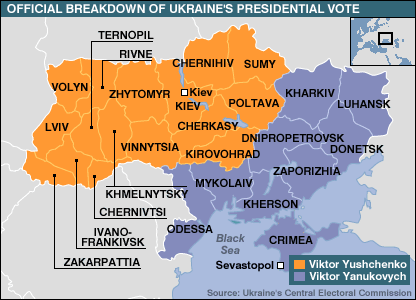The Russian forces have begun to reinforce their positions and built new observation posts near the Georgia-Abkhaz border. The increasing militarization in the area alone holds the risk of inciting conflict, not considering the possibility either side could launch an attack. Abkhazia has pushed for increasing its military ties with Russia to stave off any Georgian attack through the signing of a mutual defense cooperation pact similar to the Taiwan Relations Act and even the establishment of a Russian military base in Abkhazia. According to some reports, Abkhazia has even suggest bringing the unrecognized state under Russian military control, though Abkhaz officials have denied this. However, a Russian security agreement, combined with a large Russian presence and Russian military base is not far from absolute Russian control especially in light of the other extensive ties between the two parties.
Beyond Georgia there's also the risk of bringing other countries into the conflict. Some reprots are suggesting Azerbaijan will send fighters into Georgia in an unofficial capacity to fight against Russia in the event of a conflict. On top of this are apparent calls for European Union peacekeepers to replace the Russian, which has been suggested earlier this year. How far Georgia's allies would go to support them is crucial to the equation. If Azerbaijan supports Georgia in any concrete or significant manner Russia could stir up the situation in Nagorno-Karabakh through Armenia to draw their attention.
Abkhazia has seen calls to withdraw from UN talks over Abkhazia's status and has been heavily critical of the UN presence in Georgia. At the same time Georgia is pushing itself closer to the West and the European Union, as well as NATO. The Membership Action Plan, while not backed at the Bucharest summit has been left to a meeting of foreign ministers which will decide on December whether to grant Georgia a MAP. The forging of such an agreement is likely to be the instigator of any recognition process or conflict, presuming tensions do not reach such a point before then. However, it is also possible this could extend to Ukraine if they too are granted a Membership Action Plan. It is much more likely for the West to respond to a serious attempt to divide Ukraine and annex part of its territory than a move on Georgia. However, Western
 governments may not yet have the stomach for a confrontation with Russia and not directly engage them in either case.
governments may not yet have the stomach for a confrontation with Russia and not directly engage them in either case.Russia's actions portend a new rise of the Russian Empire, an empire built on a state monopoly of oil and gas resources. On some level such an empire already exists with Russia's dominance of the breakaway states and their influence in Belarus. The union of Russia and Belarus could be seen as a Russian land grab with the smaller Belarus to be swallowed by the larger Russian nation. Russia's threats on NATO membership against Ukraine show more of these imperialistic aims with likely half the country to be gobbled up in any future secession. On some level such secession would be necessary as it would provide a crucial land link to land-locked Transnistria, which is also a separatist state seeking Russian integration. By dividing Ukraine and annexing the eastern part of it Russia would pave the way for the annexation of Transnistria. Not to mention it would turn Ukraine into a land-locked country, diminishing the effect of its NATO membership. It is unlikely Russia wishes to see its Crimea port turned over to the United States. The annexation of Eastern Ukraine and Abkhazia would then give Russia an almost equal share of the Black Sea coast as Turkey. In this sense such a seizure could be not only a counter to NATO's land expansion, but their expansion on the seas as well. With Turkey, Bulgaria, and Romania all in NATO Ukrainian and Georgian membership would leave Russia boxed in by the West. While Turkey continues to control the Bosporous and Dardanalles straits controlling the other half of the coastline severely limits NATO's options in the area. If Russia can secure Turkey's switch to their side, a possibility if the AKP and its members are actually banned, then it would be NATO, not Russia being boxed in and having to work with the Russians in the area rather than the other way around. This would also destroy European hopes at securing their energy independence from Russia as Turkey and Ukraine were seen as the ideal substitutes for funneling energy through Russia.
It is in this light that the recent tension with Georgia becomes clear. Russia is no longer interested in simply halting NATO expansion east, but countering such moves with its own expansion to the West. A conflict with Georgia could be just the beginning of a move by Russia to gain more power over Europe.
No comments:
Post a Comment